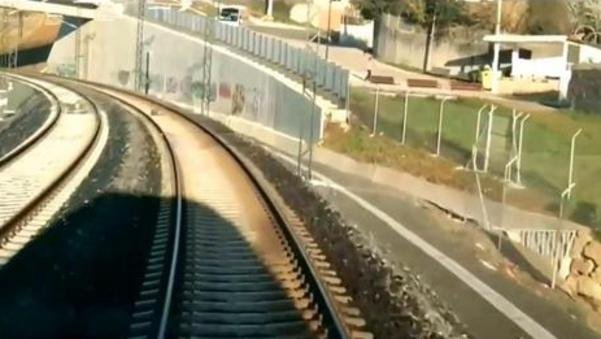
Deadly train crash in north-west Spain
At least four people have been killed and 47 hurt in a train crash near O Porrino in north-western Spain. About 60 passengers were on the Portuguese train when it derailed just outside the station. Those killed were the Portuguese driver and Spanish conductor, a US tourist and another Spaniard. Several foreign nationals were reportedly on board. O Porrino is located south of the Galician city of Vigo, near the border with Portugal.
In July 2013 Spain suffered one of its worst train crashes in the same region, when a high-speed train derailed near Santiago de Compostela, killing 79 people and injuring some 170. The driver failed to brake in time before a bend.
In Friday’s train crash the train apparently hit part of a bridge. The train would had also struck a signalling tower next to the line.
Authorities have opened an investigation and retrieved the train’s data recorder for analysis. The train operator is Comboios de Portugal and it was travelling on the Vigo-Porto route.The reasons for the derailment has yet to be determined.
Railway and track management company Adif said the accident had happened just before the train arrived in the station. “The train braked suddenly and suitcases fell on top of us,” a passenger told Reuters news agency.
Jesus Vazquez Almuina, health representative in the regional government, was quoted as saying there were many nationalities on board. “There were a lot of Spaniards and Portuguese obviously, but also Americans, Germans, people from Chile, Argentina… people who were doing the Road to Santiago [pilgrimage] and were continuing their trip to Porto,” he said.
***
BCVLEX specializes in cross-border personal injury claims, notably in the context of individual or collective transportation accidents. In the U.S., we cooperate in this area with Walker, Hamilton & Koenig, LLP, one of California’s top personal injury law firms. Since 1988, they have successfully represented individuals that have sustained injuries in incidents that were caused by no fault of their own.

